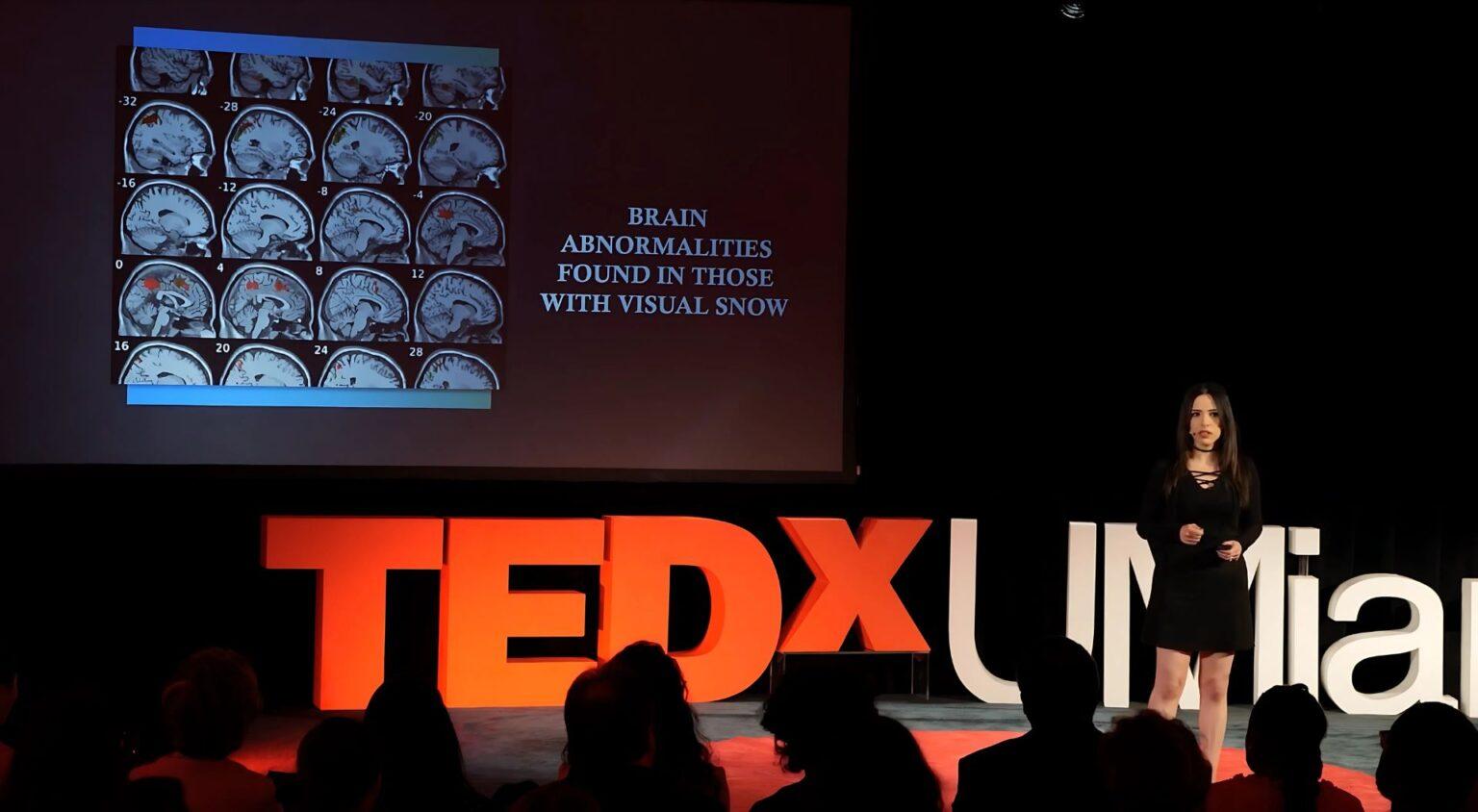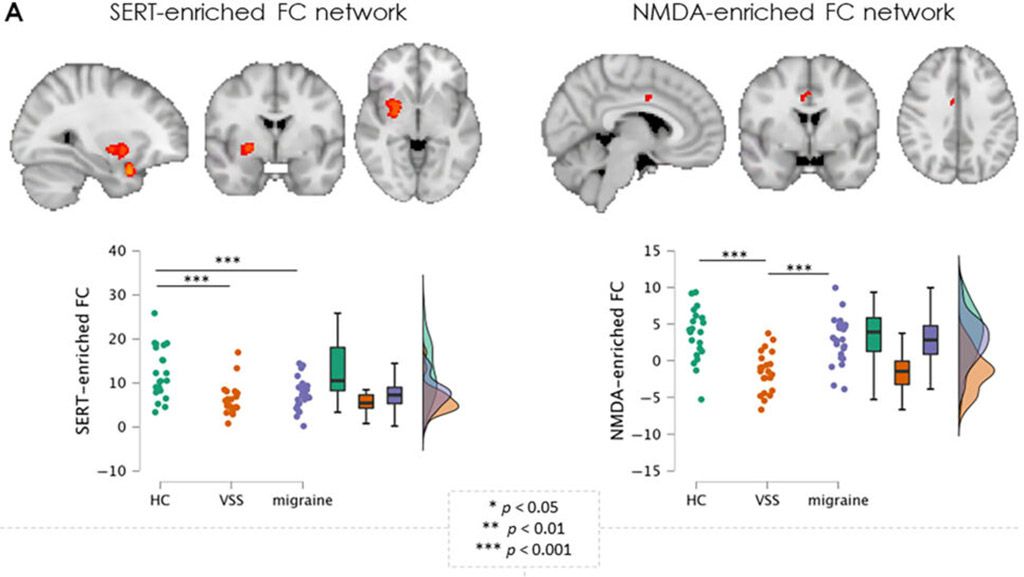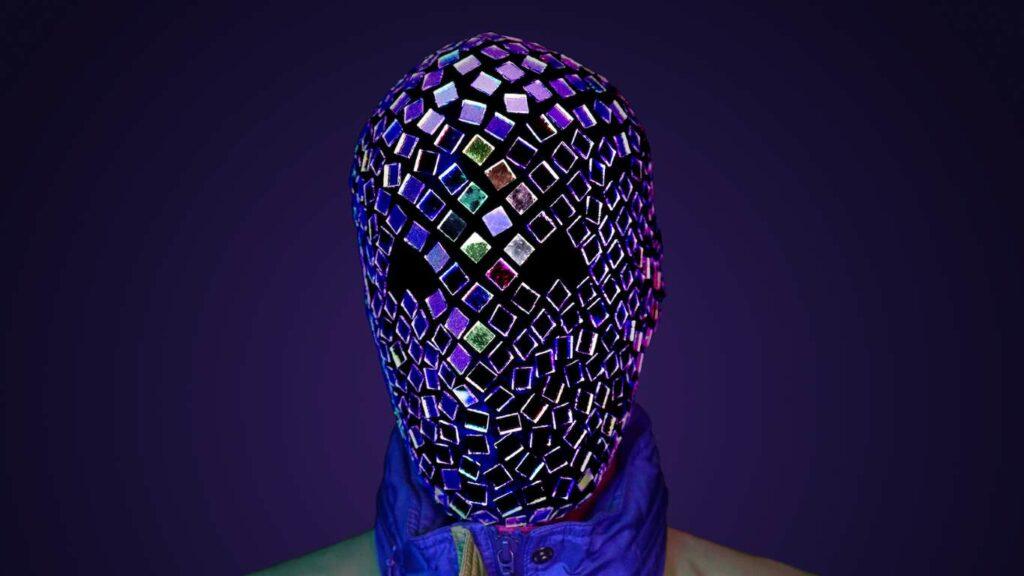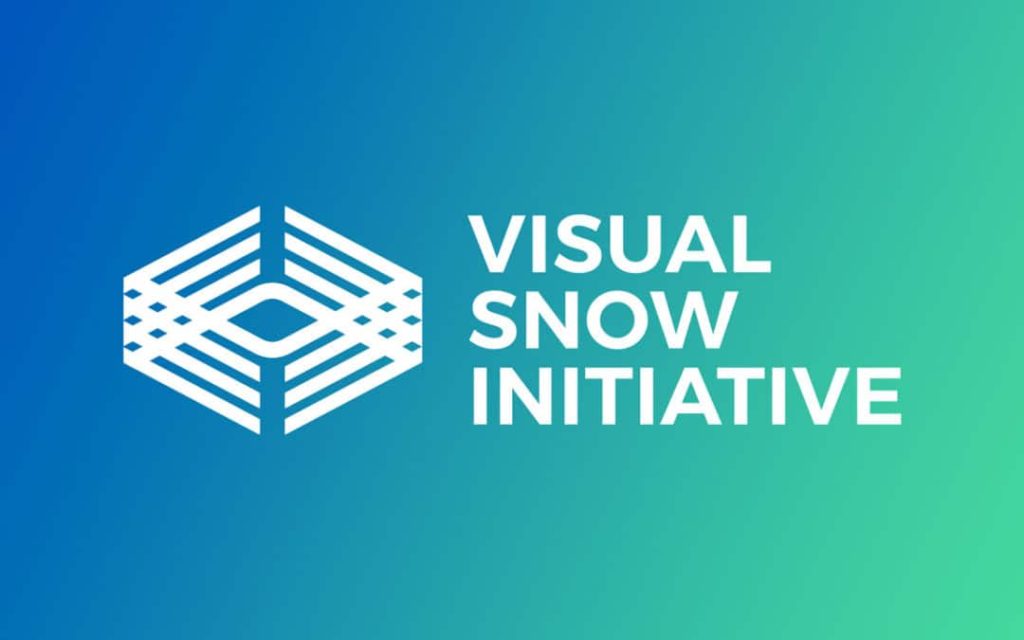Sierra Domb - Founder of the Visual Snow Initiative
After years of frightening medical tests, agonizing uncertainty, harmful misdiagnoses, and the dismissal of her symptoms as imaginary, Sierra was finally diagnosed with Visual Snow Syndrome (VSS) in her early 20s. VSS is a neurological condition that affects vision, hearing, cognition, sensory processing, and overall quality of life. Though it impacts an estimated 2-3% of the global population, it remained largely unrecognized within the medical field. Like Sierra, millions of individuals of all ages were misdiagnosed, mistreated, or dismissed entirely due to this lack of awareness. This was not an isolated experience; for decades, those with VSS had faced doubt, ostracism, mistreatment, and even wrongful institutionalization. Despite clinical records of the condition dating back to 1944, the medical field had largely ignored those affected.
Prior to her diagnosis, Sierra saw many physicians, all of whom were unaware of VSS. While a few acknowledged the reality of her symptoms, they offered grim and uncertain predictions, believing that the severity and widespread nature of her symptoms suggested she might go blind or even die. Others dismissed the validity of her symptoms, relying on normal test results, most of which focused on her eyes due to the visual nature of her symptoms. However, VSS is a neurological condition that originates in the brain, a fact that was being established in scientific and medical literature, but not yet recognized by the global medical community.
In an attempt to help, she was prescribed medications that only worsened her condition, leading to new and harmful side effects. The relentless visual static, sensory disturbances, and other neurological symptoms were already overwhelming, making daily life unmanageable. Compounded by medical trauma and neglect, her condition deteriorated further, and she developed Post-Traumatic Stress Disorder (PTSD) from years of searching for answers and support, with no resources or hope.
Finding others online with VSS was both cathartic and painful. While some offered support, others told Sierra her life was over, there was no hope, and that she should end her life. As a young woman, it was heartbreaking to see how deeply others were suffering, some even contemplating suicide.
After discovering a research article that described all her symptoms, Sierra reached out to its author, a doctor who subsequently diagnosed her with Visual Snow Syndrome. Following discussions with him and his colleagues, Sierra was informed that funding and support for their research were at risk, and no further progress could be made for those affected by the condition without additional resources.
Sierra could not bear the thought of anyone else having to endure what she had experienced. Although she felt unqualified at the time, she recognized that progress would not be made unless she took action. She channeled her frustration, pain, and trauma into purposeful effort, determined to help both herself and others facing similar challenges.
In 2018, Sierra organized the first Visual Snow Conference and founded the Visual Snow Initiative (VSI), a nonprofit dedicated to raising awareness, providing education and resources, advocating for patients, and advancing research and treatment for VSS.
Drawing from her personal experience with medical challenges and her background in communication studies, behavioral sciences, and qualitative data analysis, Sierra’s steadfast advocacy and leadership have helped transform the narrative surrounding VSS within the medical and scientific communities. She played a pivotal role in raising awareness of the condition and empowering both patients and medical professionals with accessible resources, educational materials, multimedia content, diagnostic tools, groundbreaking research, and diverse treatment options. Her efforts also contributed to historic discoveries in biomarkers, pathophysiology, and brain network mechanisms, deepening the understanding of VSS. By bringing together global researchers and fostering collaboration, Sierra advanced critical work on VSS, secured its recognition as a distinct neurological disorder with both visual and non-visual symptoms, and led a successful, historic initiative to gain recognition for VSS and its symptoms in the International Classification of Diseases.
An advocate for science-driven positive change and personal resilience, Sierra’s relentless efforts and progress have reflected her drive to make VSS better understood, recognized, and addressed than when she first experienced the onset of the condition at 21.
Sierra’s groundbreaking work in advancing progress for VSS has been deeply influenced by her personal journey with the onset of Visual Snow Syndrome in 2015, characterized by persistent visual and sensory disturbances. This, combined with her lifelong struggles with Autoimmune Dysregulation, which causes the immune system to attack healthy tissues, and Erythromelalgia, a rare condition leading to intense burning pain and redness in the extremities, strengthened her resolve to turn these challenges into a catalyst for positive change.
Her struggles with Autoimmune Dysregulation and Erythromelalgia, present since childhood, were further complicated by bullying due to the side effects of the medications she needed to manage them, which altered her appearance and imposed physical limitations. Sierra’s conditions caused chronic pain, immunocompromised states, and ongoing distress throughout her life, all while balancing academic responsibilities, social engagements, and striving to maintain a sense of normalcy. When VSS added to her challenges in 2015, these experiences fueled her determination to overcome her shyness about discussing her health, inspire change, and enhance communication between patients and medical professionals.
Driven by a desire to help others facing health challenges and make a difference, Sierra shared her story to raise awareness, foster education and understanding, advocate for others, inspire progress in the medical and research communities, and help bridge the gap between patients and physicians.
Detailed information about Sierra’s journey with Visual Snow Syndrome and the Visual Snow Initiative, along with her credentials, articles (interviews, research, Q&As), videos, and more, can be found below. ↓
About Sierra Domb
Sierra Domb is a global activist for Visual Snow Syndrome (VSS), a humanitarian, a research collaborator, and a trailblazer in neuroscience and health communication.
As the Founder of the Visual Snow Initiative (VSI), she has worked tirelessly to raise awareness, provide education, create vital resources, advocate for patients, and foster collaboration among global researchers and physicians, driving critical advancements in the clinical and scientific recognition of VSS. Her leadership has led to major research discoveries and expanded access to diagnosis, treatment, and resources for millions of all ages worldwide. Sierra also led the historic initiative that secured the first-ever ICD recognition of both Visual Snow Syndrome and its hallmark symptom, Visual Snow, characterized by the constant presence of static or snow-like dots across the visual field 24/7.
Sierra has served on the International Advisory Board for the Columbia-WHO Center for Global Mental Health, where she has worked to challenge stigmas surrounding neurological and neurodevelopmental disorders with severe symptoms and lack of resources to help, which can impact mental health, while advocating for better resources in underserved regions. A TEDx Speaker and 2024 UMiami “30 Under 30” Award-Winner, she has also been an author and collaborator at Oxford Mindfulness.
Her academic expertise has spanned behavioral sciences, health communication, and qualitative data analysis, with a strong focus on neuroscience, research, and global health advocacy. Sierra’s work as a research collaborator has intersected with VSS, the marginalization of medical conditions, the impact of debilitating symptoms on physical and mental health, and neuro-ophthalmology.
Born in Miami, FL, Sierra’s diverse professional background also includes experience as a Voice Actor in Los Angeles, CA, a Writer and Photographer whose work was published in The Miami Herald, and a DJ/Radio Show Host.
The Beginning of Sierra Domb’s Journey with VSS
In 2015, at 21 years old, Sierra’s life changed in an instant. Her journey with VSS began one morning when she noticed subtle flickering and an increase in floaters in her vision. Later that day, while driving back to school from a café, her vision suddenly went black behind the wheel. Instinctively, she pulled over to avoid a crash. The darkness lasted only a moment, but when her vision returned, the world looked drastically different. Her entire visual field was overtaken by a relentless overlay of flashing lights and moving particles, resembling dense television static or “white noise.” This visual disturbance persisted 24/7, whether her eyes were open or closed. She would later learn this phenomenon was called “Visual Snow.”
(Continued below… ↓)




Over the following days, Sierra’s symptoms worsened, affecting both her vision and overall sensory processing. She experienced palinopsia, photophobia, enhanced entoptic phenomena, diplopia, photopsia, tinnitus, derealization, and more. At the time, Sierra was studying communication and film, hosting her own radio show, and working as a voice actor. Her symptoms were so debilitating that she could no longer drive, was forced to take a hiatus from school, and found even familiar faces and beautiful views turned into disorienting nightmares. She feared her vision might deteriorate further. Doctors, unable to provide answers, even feared she might go blind or worse. The profound uncertainty and lack of understanding were deeply isolating and frightening.
Despite seeking help from numerous doctors and specialists at renowned medical institutions, no one could explain Sierra’s symptoms or provide a diagnosis. After extensive testing, primarily focused on her eyes, all results came back normal. The source of Sierra’s visual disturbances was not related to the structural integrity of her eyes, but rather to a brain disorder that impacted her neuro-ophthalmological “brain-eye” functions, including vision, cognition, sensory processing, and more. At this time, medical testing and diagnostic tools were not equipped to address her condition.
Despite the severity of her condition, every doctor she saw either misunderstood or dismissed it as “stress” or “anxiety.” Sierra was prescribed medications that worsened her symptoms and caused new, harmful ones only to be told to “get used to it” or that it was “just her imagination.” On top of the already debilitating symptoms, this only made things worse, leaving her without support, resources, or hope. The relentless visual static, sensory disruptions, and neurological symptoms were devastating on their own. The added burden of medical trauma, misdiagnoses, and neglect combined with debilitating visual and non-visual symptoms led Sierra to develop Post-Traumatic Stress Disorder (PTSD) after years of seeking answers and support. This only amplified the challenges of living with VSS.
It was gut-wrenching to feel invisible and alone in her struggles. Finding others online with Visual Snow Syndrome was both cathartic and painful. While some offered support, others told Sierra her life was over, there was no hope, and that she should end her life. As a young woman, it was heartbreaking to see how deeply others were suffering, some even contemplating suicide. And this wasn’t just her experience; millions worldwide of all ages live with Visual Snow Syndrome. Clinical records of the condition date as far back as 1944, with patients between then and Sierra’s onset facing doubt, ostracism, mistreatment, and even wrongful institutionalization because no one believed them, and the medical community was neither educated about nor interested in VSS.
Sierra couldn’t bear the thought of anyone else enduring what she went through. Despite feeling unqualified at the time, she knew nothing would change unless she tried her best. Sierra channeled her frustration and trauma into creating change, determined to help both herself and others facing the same struggles. As she faced marginalization and mistreatment from a medical community unfamiliar with VSS, Sierra realized she needed to take action not just for herself, but for the countless others struggling with similar challenges. Determined to create meaningful change, Sierra shifted her focus to studying neuroscience, philanthropy, activism, and innovations in healthcare. Her goal was to build a more informed, inclusive, and supportive world for those affected by VSS by providing resources, raising awareness through education, and advocating for improved treatment and research.
Founding the Visual Snow Initiative: Advancing Progress and Milestones for VSS
In 2018, she took a pivotal step toward fulfilling this mission. Sierra and her team organized the first-ever Visual Snow Conference at UCSF, a free summit that brought together VSS patients, their families, and leading experts from around the world. This landmark event not only raised awareness but also marked the beginning of Sierra’s efforts to create a global network of Visual Snow Syndrome experts. After the conference, Sierra founded the Visual Snow Initiative (VSI) and established a Global Research Team by introducing physicians, scientists, and researchers from across the globe. This collaborative team reignited VSS research and worked together to develop essential resources such as the first-ever Diagnostic Criteria for Visual Snow Syndrome and the first-ever Global Directory of VSS Physicians Specialists. The studies funded by VSI have led to key discoveries about the biological basis, pathophysiology, and treatment of VSS symptoms, which have been published in medical and scientific journals, including Frontiers, Frontiers in Neurology, Brain Communications, Annals of Neurology, Neurology (American Academy of Neurology), Journal of Neuro-Ophthalmology, PubMed, and more.
(Continued below… ↓)
The efforts led by Sierra and VSI have helped establish VSS as a distinct neurological condition, with both visual and non-visual symptoms, affecting vision, hearing, sensory processing, and cognition. Through VSI-funded studies, significant advancements have been made in understanding the biological basis, pathophysiology, and potential treatments for VSS. These discoveries have resulted in widespread scientific recognition of VSS, with support from prominent medical and scientific institutions such as the World Health Organization (WHO), Mayo Clinic, Cleveland Clinic, National Institutes of Health (NIH), National Institute for Health and Care Research (NIHR), National Health Service (NHS), Healthline, and more.
After the onset of VSS and the founding of VSI, Sierra returned to university to complete her studies while navigating the new health challenges VSS introduced. Drawing from her personal experiences, she shifted her focus to earning a B.Sc. in Communication Studies, specializing in behavioral sciences, health communication, and qualitative data analysis from the University of Miami. Sierra was driven by a desire to empower others to overcome adversity and make neuroscience accessible to individuals from all walks of life, regardless of age, background, or health literacy. Her advocacy has played a key role in raising awareness for Visual Snow Syndrome through television, news outlets, and podcasts. Sierra’s work has been featured in publications such as Business Insider, ABC Australia, Healthcare Brew, and on CBS. To further amplify the cause, VSI has sponsored events like the Daytime Emmy Awards and garnered support from public figures, including Ringo Starr of The Beatles.
In her TEDx talk, “What is Visual Snow? Transforming Anguish into Action,“ Sierra shares the challenges she and many others with VSS have faced, illustrating how she transformed her personal struggle into a mission to reduce patient marginalization and legitimize a condition once dismissed by the medical community. Additionally, she produces educational videos and multimedia content about VSS for healthcare professionals and patients.
In 2024-2025, Sierra Domb, alongside Dr. Peter Goadsby and Dr. Owen White, led a groundbreaking initiative through the Visual Snow Initiative that achieved a historic milestone: securing official ICD recognition from the World Health Organization for both Visual Snow Syndrome (the neurological condition) and Visual Snow (the symptom of seeing static 24/7). This achievement marked the first time Visual Snow Syndrome was globally recognized within the medical and scientific communities. This milestone is a monumental victory for patients who have been marginalized and dismissed since the condition was first reported in 1944. By securing official recognition, VSI helped pave the way for improved diagnosis, research, and treatment worldwide, offering long-overdue validation to those who have lived with this long-misunderstood condition.
Navigating VSS and Overcoming Adversity: Sierra’s Multifaceted Approach to Life and Health Challenges
Through scientifically researched methods developed by VSI and with time, Sierra’s VSS has improved dramatically since its onset, with significant progress made in areas such as awareness, education, research, resources, treatment options, and more, compared to when she first developed the condition. While she continues to manage the remaining minor symptoms and cope with PTSD from her medical journey with VSS, she also faces Autoimmune Dysregulation (AD) and Erythromelalgia, secondary to AD, conditions she has lived with since childhood, which can cause severe pain, immunocompromised states, and distress at times.
Despite her progress with VSS and her refusal to let the condition define her, Sierra acknowledges that her health challenges, including VSS, remain an integral part of her journey. She has used these challenges as a catalyst to drive positive change, ultimately helping individuals of all ages who face similar struggles.
Initially hesitant to discuss her health due to bullying over appearance-altering medication side effects and physical limitations caused by her conditions, which made it difficult to keep up, her desire to help others facing similar struggles ultimately motivated her to overcome this hesitancy. By sharing her story, Sierra has worked to raise awareness, advocate for patients, and inspire meaningful change in the medical and research communities.
Nonconformity, resilience, and independent thinking have been at the heart of Sierra Domb’s identity. While her medical challenges have been part of her journey, they have never fully defined her. She has always believed that reducing someone to a single aspect of their experience overlooks their full complexity. Too often, people try to categorize others into narrow definitions, forgetting that we are multifaceted individuals. Sierra has been passionate about showing that adversity, compassion, kindness, intelligence, and strength can coexist and reinforce one another. She has held the belief that life and emotions are nuanced, that one can struggle and still be strong or be kind while also intelligent. For her, identity has never been singular; it is a complex tapestry of diverse interests and strengths, a perspective that has shaped her personal, academic, and professional journey.
For more from Sierra, visit her website at www.sierradomb.com, or explore articles (Q&As, interviews, research) and videos below. ↓

Sierra's Articles
Sierra's Journey with Visual Snow Syndrome
Sierra Domb's Videos
Support Visual Snow Syndrome Research
All donations to the Visual Snow Initiative go directly to Visual Snow Syndrome (VSS) research.
Your tax-deductible contribution ensures that global research will continue and makes a positive difference in the lives of people affected by VSS.


























